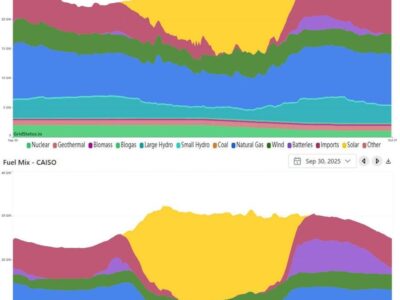Fukushima Whodunit
 In a remarkable and significant new report, Japanese experts have concluded that the Fukushima nuclear accident was a “man”-made disaster – phrased this way perhaps in a gallant effort to allow all women to distance themselves from the decision making process. This dramatic conclusion prompts yet another question: If “man” isn’t responsible, then who is? Was it a dolphin conspiracy, perhaps? Or some nefarious abalone alliance? Can the decision to construct a facility housing a nuclear reactor in an active earthquake zone be attributed to natural causes? Can the failure to design the facility in a manner that could successfully resist the combined forces of an earthquake and tsunami be blamed on anyone other than human seismologists and engineers? Can the conclusion — that any residual risk inherent in building that plant in that location was a risk worth taking — be attributed to an act of God?
In a remarkable and significant new report, Japanese experts have concluded that the Fukushima nuclear accident was a “man”-made disaster – phrased this way perhaps in a gallant effort to allow all women to distance themselves from the decision making process. This dramatic conclusion prompts yet another question: If “man” isn’t responsible, then who is? Was it a dolphin conspiracy, perhaps? Or some nefarious abalone alliance? Can the decision to construct a facility housing a nuclear reactor in an active earthquake zone be attributed to natural causes? Can the failure to design the facility in a manner that could successfully resist the combined forces of an earthquake and tsunami be blamed on anyone other than human seismologists and engineers? Can the conclusion — that any residual risk inherent in building that plant in that location was a risk worth taking — be attributed to an act of God?
I mean, the earth and waves near the plant were just doing what earth and waves do. It was people who decided to put a nuclear plant there. Or, to ask the question another way, if a person is injured while going over Niagara Falls in a barrel, are those injuries the result of a natural disaster?
To be fair, the study offers a far more significant conclusion. In the words of the New York Times, investigators found that the “nuclear accident at Fukushima was a preventable disaster rooted in government-industry collusion and the worst conformist conventions of Japanese culture.” One is left to wonder: If there were a comparable accident in the U.S. at San Onofre or Diablo Canyon, what would investigators conclude?
Reader Comments
2 Replies to “Fukushima Whodunit”
Comments are closed.






A prerequisite to answering your question might be a careful examination of the remarkable similarities California’s electricity regulation system bears to the Japanese “amakudari” system. For better or worse, we, seem to depend on a revolving door between high level utility executives and senior government officials. As noted at the recent Energy Commission workshop on Southern California’s potential for SONGS-related blackouts this summer: http://youtu.be/kD0E9PVjST4
A prerequisite to answering your question might be a careful examination of the remarkable similarities California’s electricity regulation system bears to the Japanese “amakudari” system. For better or worse, we, seem to depend on a revolving door between high level utility executives and senior government officials. As noted at the recent Energy Commission workshop on Southern California’s potential for SONGS-related blackouts this summer: http://youtu.be/kD0E9PVjST4